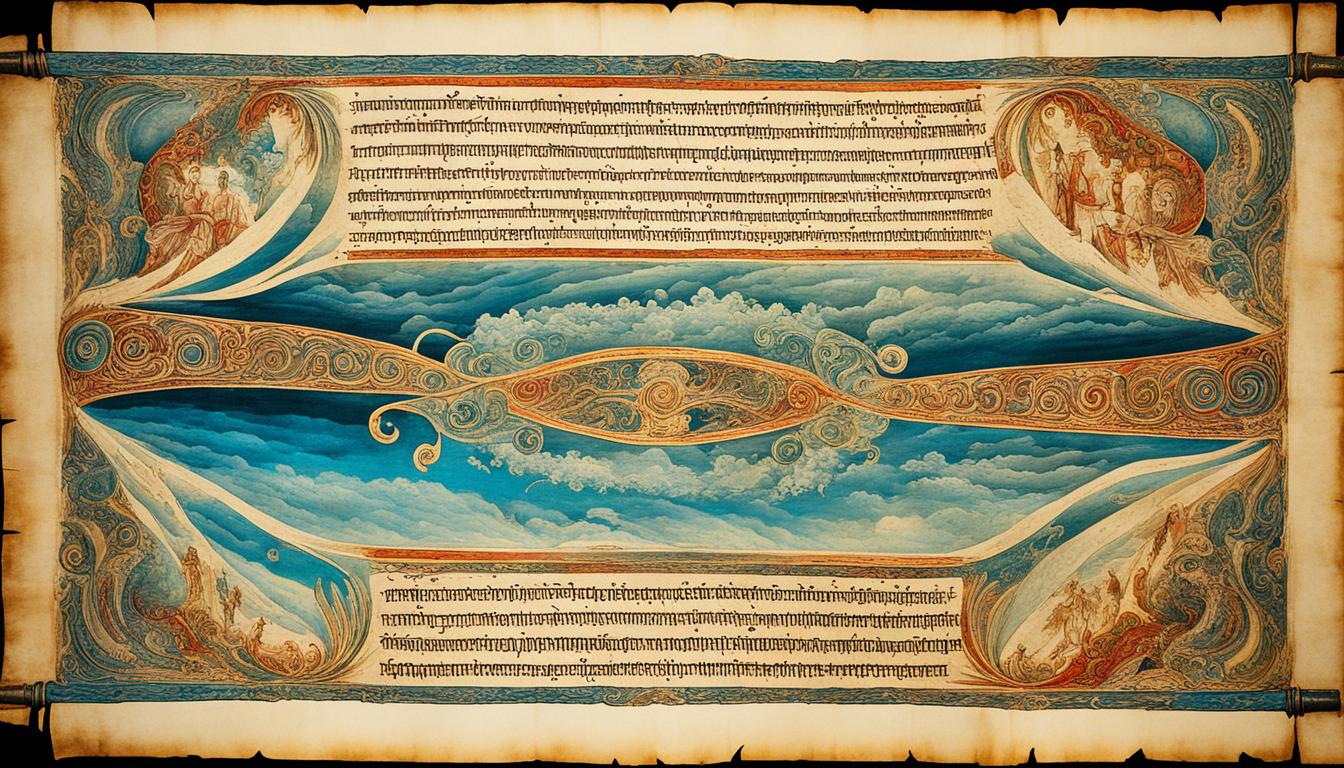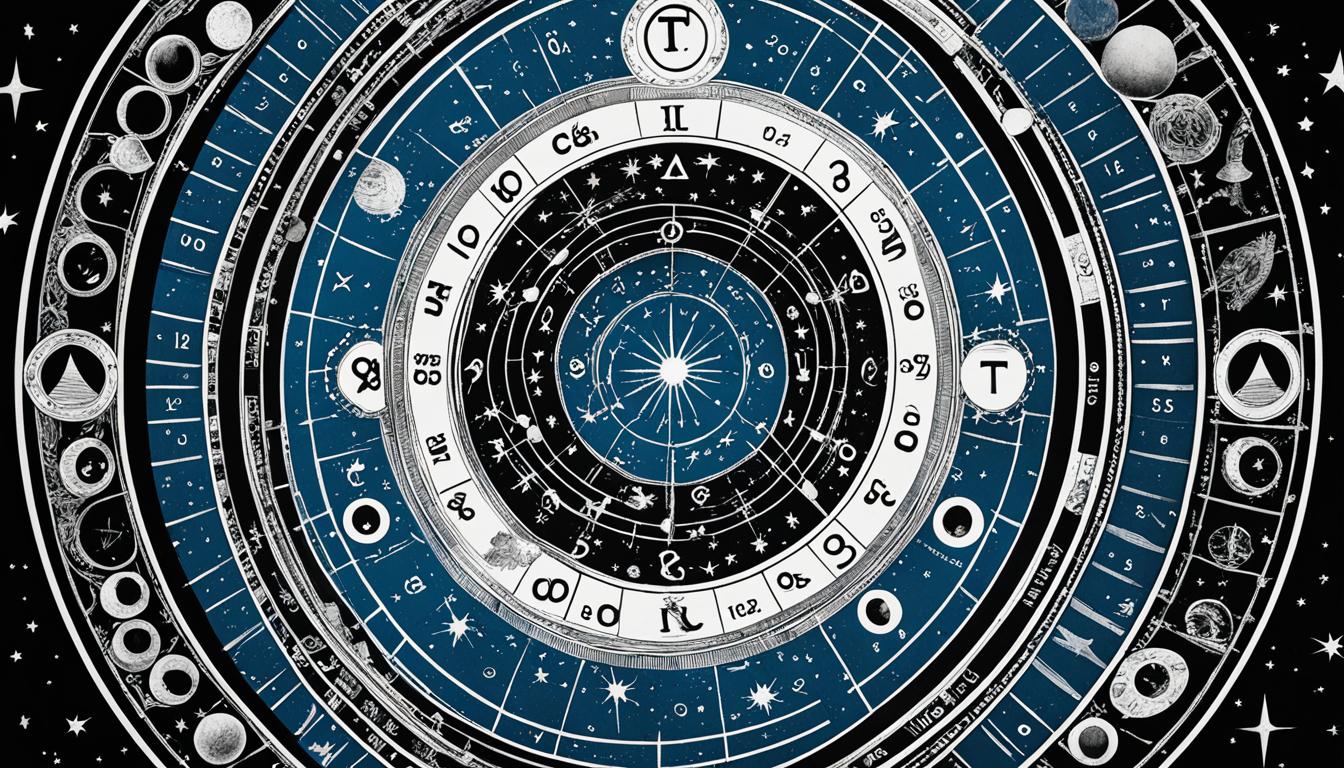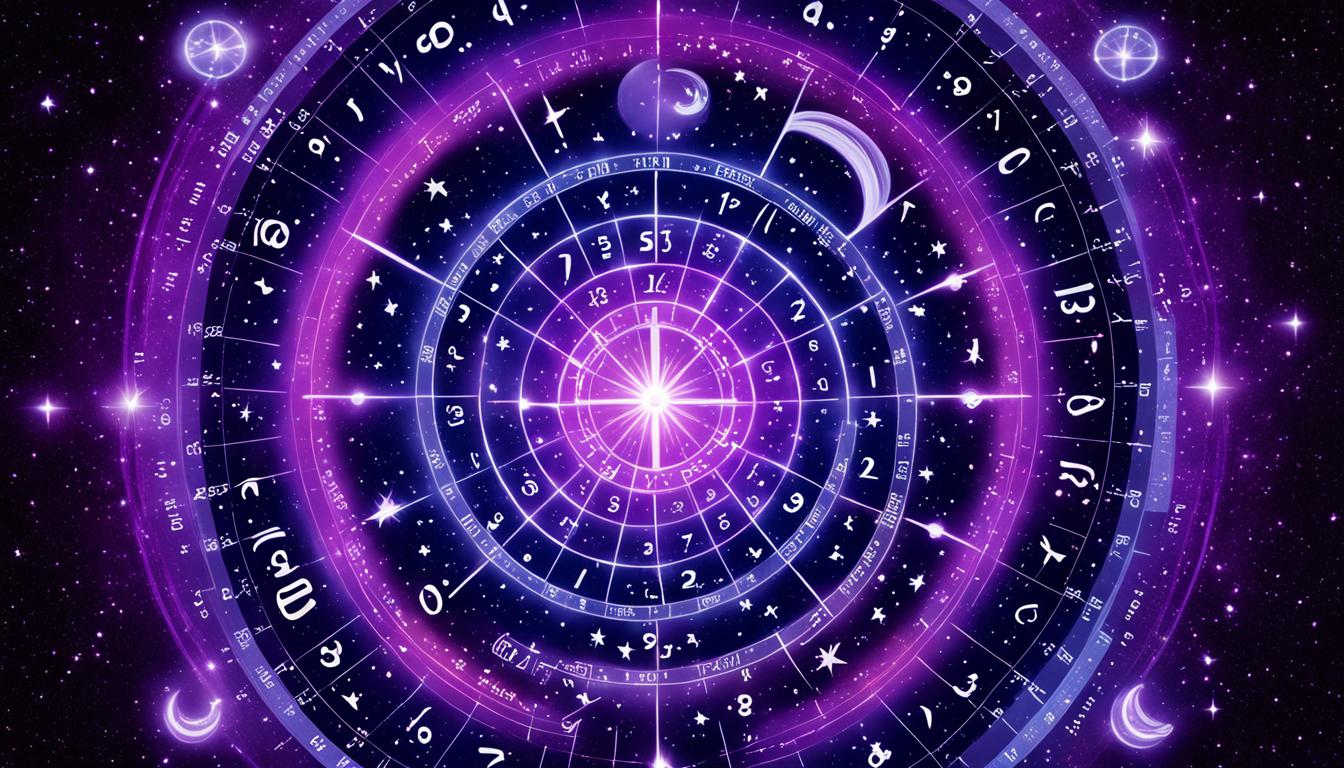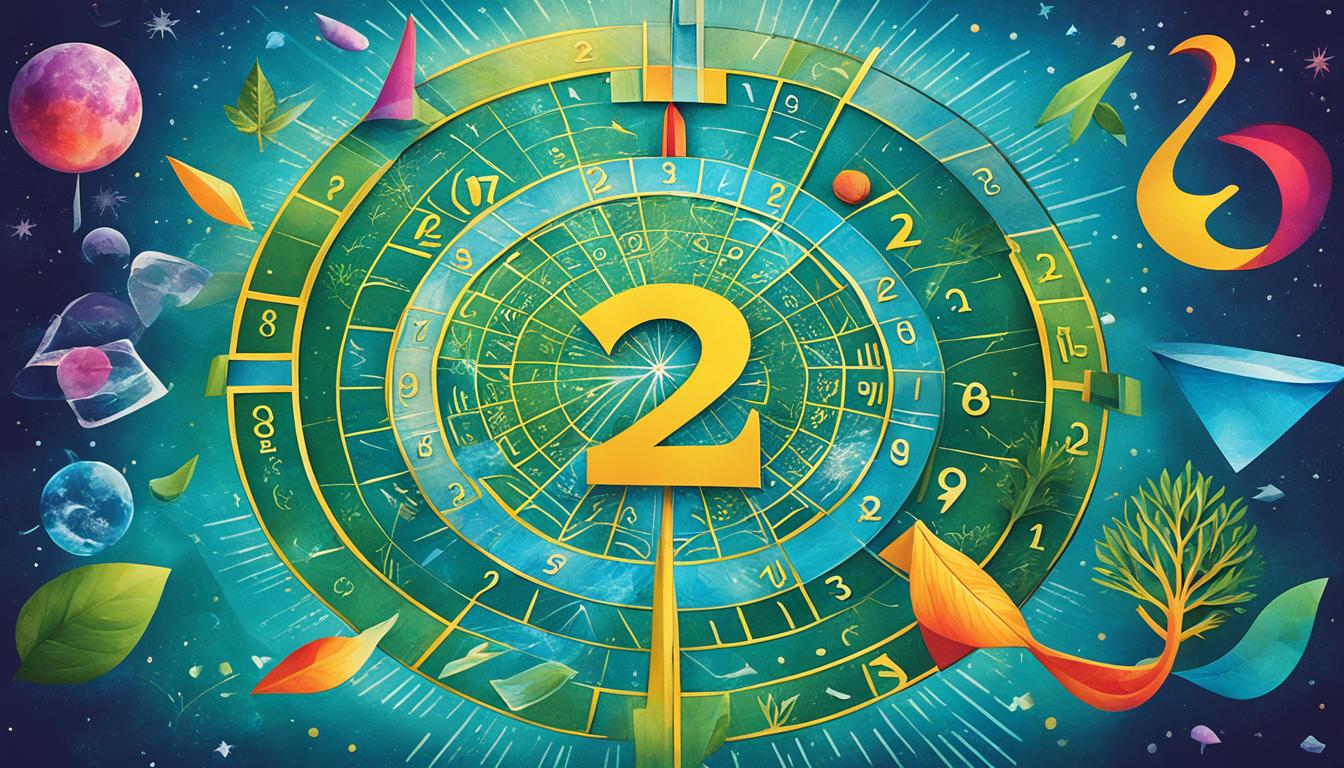Have you ever woken up from a dream, feeling your heart race? You’re not alone. Many have wondered if dreams can show us the future. This idea has been around for thousands of years, making us think about reality and what lies ahead.
Lucid dreaming, being aware you’re dreaming and controlling it, is old. It goes back to ancient times1. The term “lucid dreaming” was first used in 1867, by Marie-Jean-Léon Lecoq1. But, ancient Greeks like Aristotle knew about it long before that1.
The Babylonian Talmud talks about different kinds of dreams, including vivid ones1. This shows how people have always been interested in dreams and what they might mean.
In Jewish beliefs, dreams are very important, especially for prophecy1. The story of Jacob’s dream makes us think about the difference between prophetic and lucid dreams1. This has made scholars and dreamers wonder for a long time.
Looking into lucid dreams and prophecy, you’ll find a mix of old beliefs and new science. From ancient Mesopotamia to today’s studies, it’s a journey full of interesting facts.
Key Takeaways
- Lucid dreaming has roots in ancient civilizations
- The term “lucid dreaming” was coined in 1867
- Ancient Greek philosophers understood lucid dreaming
- The Babylonian Talmud discusses vivid dream states
- Dreams play a central role in Jewish theology and prophecy
- The line between prophetic and lucid dreams remains blurry
- Historical accounts span various cultures and time periods
The Origins of Lucid Dreaming
Lucid dreaming has been a mystery for centuries2. It lets you control your dreams and do things you can’t in real life2. Let’s dive into its history and how it has changed over time.
Ancient Greek Philosophers and Lucid Dreams
Greek thinkers were early fans of lucid dreaming. Aristotle thought about being aware in sleep, setting the stage for dream study. They saw dreams as a way to learn more about the world.
Babylonian Talmud’s Understanding of Dream States
The Babylonian Talmud talks about different kinds of dreams. It says some dreams are just random, while others are clear and meaningful. This old book shows how dreams were seen as important in spiritual life.
The Marquis d’Hervey de Saint-Denys: Father of Modern Lucid Dreaming
Marie-Jean-Léon Lecoq, the Marquis d’Hervey de Saint-Denys, changed the game in the 1800s. His 1867 book “Les Reves et les Moyens de Les Diriger” showed how to control dreams. His work helped start modern research on lucid dreaming.
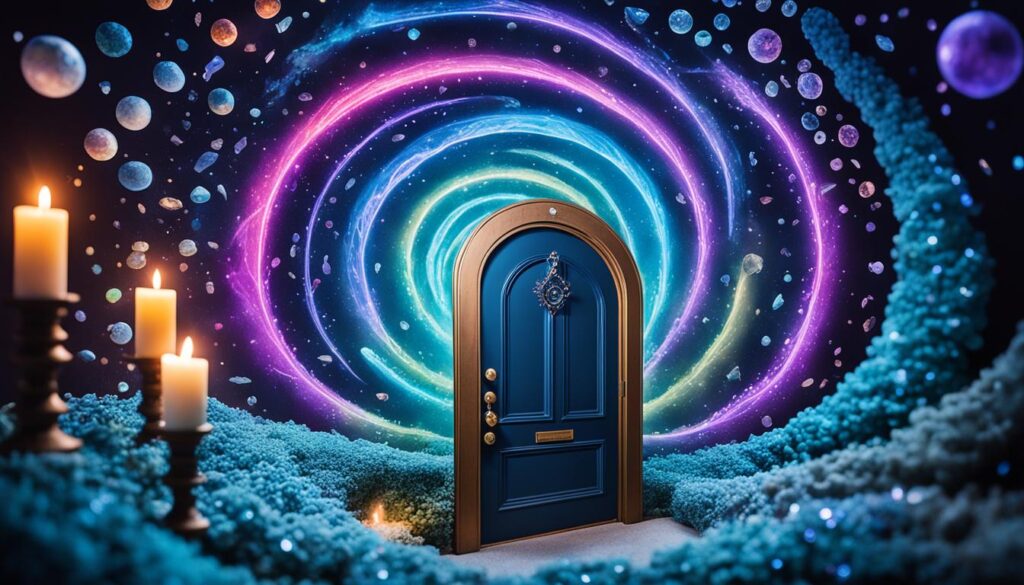
Now, science says lucid dreaming uses parts of the brain that make us aware of ourselves2. Keeping a dream journal and relaxing before sleep can help you remember and control your dreams2. Some people even take vitamin B6 to have better dreams2.
From old ideas to today’s science, lucid dreaming still fascinates us234.
Prophetic Dreams in Ancient Civilizations
Ancient civilizations saw dreams as special messages from the gods. They believed these dreams could predict the future. This led to a deep interest in understanding dreams, known as oneiromancy.
Mesopotamian Dream Interpretation
In Mesopotamia, dreams were seen as a way to connect with the divine. People there learned how to interpret dreams. King Gudea rebuilt a temple after a dream showed him what to do.
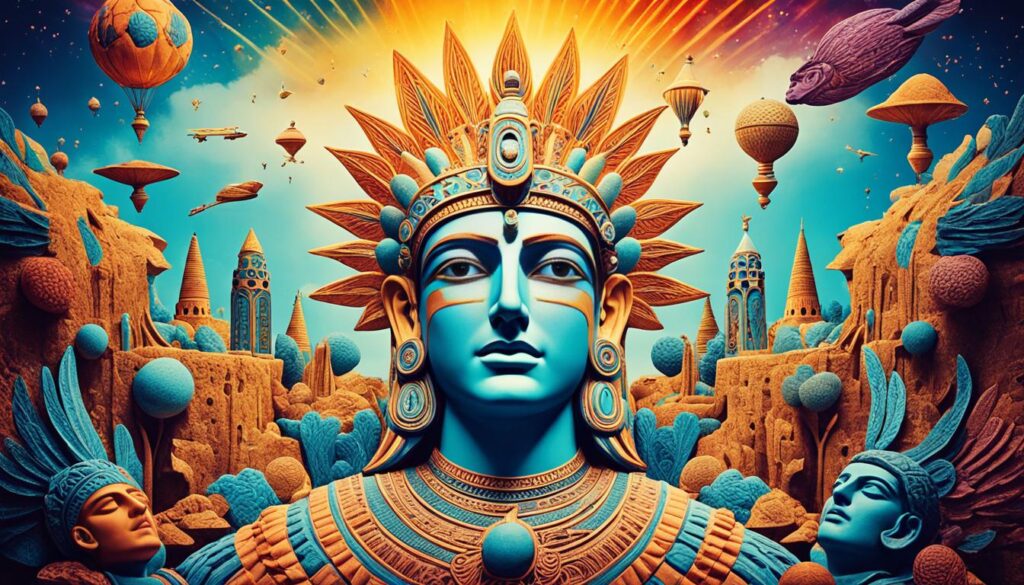
Egyptian Dream Incubation Practices
The Egyptians took dream interpretation further with their special temples. People slept there to get divine guidance in their dreams. These temples were key to their spiritual and healing practices.
Biblical Accounts of Prophetic Dreams
The Bible tells many stories of dreams that predicted the future. Joseph interpreted dreams for Pharaoh and others. This shows how dreams were seen as a way to see into the future in biblical times.
Throughout history, prophetic dreams have fascinated people. In the 16th century, Lucrecia de Leon had dreams that predicted the Spanish Armada’s failure5. Today, many people still believe in the power of prophetic dreams, with 30% of women and 19% of men saying they’ve had a dream that came true5.
Experts are still studying prophetic dreams. For example, “Dreams and Divination from Byzantium to Baghdad, 400–1000 CE” by Bronwen Neil was published in 20206. This shows how important prophetic dreams are in our history and culture.
Historical Accounts of Lucid Dreams and Prophecy
People have kept dream journals for ages, looking for clues in their dreams. They thought dreams could show the future and bring messages from the gods.
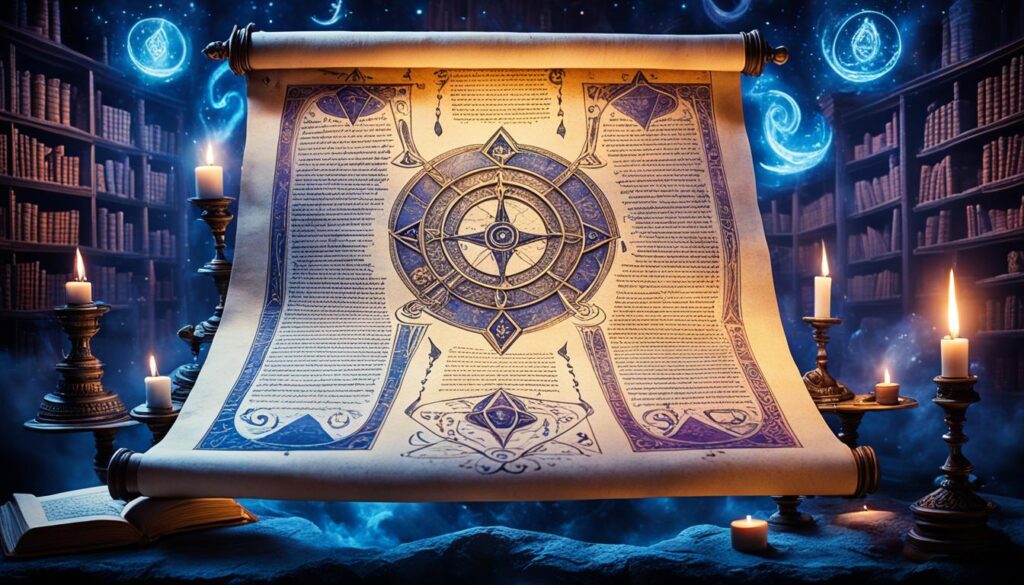
The Epic of Gilgamesh tells of prophetic dreams. It says Gilgamesh had dreams that helped him make choices. These stories show how dreams were key in old times.
Ashurbanipal, an Assyrian king, had a dream about the goddess Ishtar. He believed dreams were a way to talk to the gods. The Babylonians had a book called the Iškar Zaqīqu for dream meanings. This shows how much they valued their dreams.
Greeks and Romans also looked into dream divination. Artemidorus wrote a book on interpreting dreams that was used for a long time. Philosophers like Aristotle and Plato thought about what dreams meant.
Dreams have always caught our attention. Most dreams come from our daily life, and about half of us have lucid dreams at some point7. This shows how our dreams connect to our waking lives.
“Dreams are the touchstones of our characters.” – Henry David Thoreau
Now, science helps us understand dreaming better. REM sleep is key to dreaming, and some brain damage can stop dreaming8. This research helps us grasp how dreams work.
Some dreams might even affect our actions. People might study more or less for a test based on their dreams8. This idea is similar to old beliefs that dreams could predict the future6.
The Science Behind Lucid Dreaming
Lucid dreaming has long caught the interest of scientists and dreamers. Recent studies have brought new light to this topic. They show how our minds work while we dream and what we can learn from them.
These studies say lucid dreaming can happen at different times while we sleep. But it doesn’t happen when we’re in deep sleep9.
Recent Neuroscientific Studies on Lucid Dreaming
Researchers at Bern University have found new ways to induce lucid dreaming. They discovered that in lucid dreams, people know they’re dreaming and can control their dreams10. This lets us explore our minds and maybe even see things we can’t see in real life.
EEG recordings of long-time meditators in deep sleep showed brain activity that suggests consciousness during sleep. This links meditation to lucid dreaming9.
Time Perception in Lucid Dreams
Lucid dreaming changes how we see time. Studies show time can feel up to 50% longer in these dreams. This could be why some dreams feel so vivid and long.
Also, about 17.8% to 38% of people have had dreams that seemed to predict the future. This adds more mystery to lucid dreaming10.
As we learn more about lucid dreaming, we see its potential uses. It could help with nightmares and improve how we solve problems. The science behind it is helping us understand our minds better.
FAQ
What is the origin of the term “lucid dreaming”?
The term “lucid dreaming” was first used by Marquis d’Hervey de Saint-Denys in 1867. He wrote about it in “Les Reves et les Moyens de Les Diriger” (Dreams and the Means to Direct Them).
How did ancient Greek philosophers understand lucid dreaming?
Ancient Greek thinkers like Aristotle and others knew about lucid dreaming. They saw a difference between vague and vivid dreams.
What is the significance of Jacob’s dream of the ladder in the Torah?
Jacob’s dream of a ladder in the Torah shows how lucid dreams were seen as special. They were linked to prophetic visions.
How did ancient Mesopotamian cultures view dreams?
In ancient Mesopotamia, dreams were very important. They were seen as messages from the gods. King Gudea even built a temple based on a dream.
What were Egyptian dream incubation practices?
Egyptians believed dreams could bring messages from the gods. They used dream incubation to try to understand these messages.
What are some biblical accounts of prophetic dreams?
The Bible tells stories of prophetic dreams. Joseph interpreted dreams for Pharaoh and his friends.
What are some historical accounts of lucid dreams and prophecy?
Historical stories include the Epic of Gilgamesh and a dream by Assyrian king Ashurbanipal. There’s also a dream book from Babylon called Iškar Zaqīqu.
What have recent neuroscientific studies revealed about lucid dreaming?
Recent research at Bern University found that time in lucid dreams seems longer than real life. This helps us understand consciousness and prophetic dreams better.
Source Links
- https://rabbidunner.com/lucid-dreaming-or-prophecy/
- https://dreamprophecies.com/2020/03/26/where-do-our-dreams-come-from-review-lucid-dreaming-made-easy/
- https://sarahjanesdreams.medium.com/dream-incubation-3816da189c3f
- https://bulkeley.org/books/
- https://bulkeley.org/dreaming-of-the-future-the-anticipatory-function-of-dreams/
- https://academic.oup.com/book/31867/chapter/267514139
- https://www.healthline.com/health/types-of-dreams
- https://www.neurologylive.com/view/dreams-why-do-some-really-do-come-true
- https://www.ncbi.nlm.nih.gov/pmc/articles/PMC7573223/
- https://www.sleepfoundation.org/dreams/precognitive-dreams
